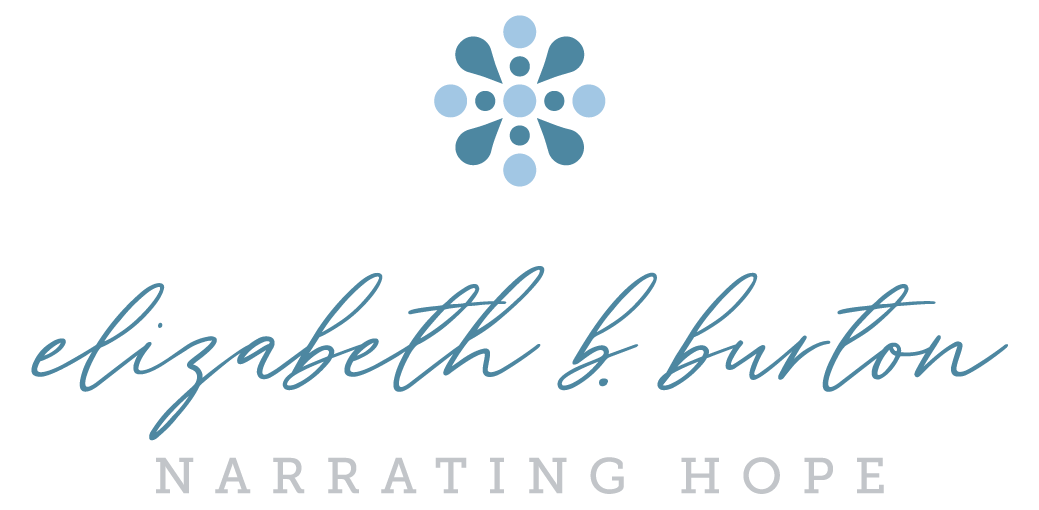Grief and Gratitude and the Power of Story
I love the concept of stories, whether it’s getting lost in a really good book or recognizing the significance of the stories that make up our lives. When you consider this framework, it is so incredibly hopeful because no matter what you are going through, there is a larger context. The premise that “there is more to your story” is something that you can hold onto. It’s a truth that can tether us as people.
Many of the stories that make up our lives are stories of grief–whether losing someone through death or through the myriad of ways that living grief shows up for us. We may grieve what was, we may grieve what is now, and we also may grieve for what we thought would be. Yet, in the midst of the grief is the ever present, the ever bidding for our attention concept of gratitude. Gratitude in all its glory shines light through the pain and reminds us that there is some glimmer of goodness, growth, redemption, beauty, and love.
Telling the Stories
In considering gratitude, we are all pretty familiar with the concept of a gratitude journal or a gratitude list, yet I appreciate Dr. Andrew Huberman’s research on the significance of gratitude stories. In his work he integrates gratitude and narrative, by highlighting how powerful gratitude stories are in practicing gratitude.
A gratitude story that comes to mind in my own life occurred about ten months after myself and my family had moved to the Chattanooga area. It was Easter Sunday, and we had driven to Mississippi for the weekend to spend time with my husband’s family. We got a late start home and then lost an hour due to the time zone difference. We were in North Georgia, many miles from home, when our car completely broke down. It was late, and it was dark. We had our own emotions regarding our reality and also had children in tow to take care of. We were without an immediate car service support situation at the time which was reinforced by it being Sunday and a holiday. I called a friend, a new friend, who literally dropped what she was doing Easter night and came and picked up my family, even bringing snacks for my children while our car was towed away. When she pulled up to pick us up, everything we were all feeling, felt so much lighter. I share that story with you as one gratitude story in my own life of the kindness and selflessness of my friend who showed up for my family in a tangible way when we needed help. According to the science as Huberman shares about in his research, even telling the story grounds me in gratitude.
Similarly with grief, there is significant benefit to telling our stories. When we tell our grief stories, we are able to integrate our losses. They still hold pain, yet it is a pain that has been named, felt, expressed, and processed.
Grief and Gratitude: Naming the Both/And
Often in counseling a theme that comes up is that of naming and integrating the both/and. Some things in our lives are simply hard, yet many times, things are good and so incredibly hard at the same time. Many things that happen in our lives and the emotions we feel are complicated, layered, and varied.
As we think about the concept of gratitude this month, let’s also name what’s hard, what grief we might feel, and the both/and while also considering the concept of narrative. And if it's hard to see the gratitude because the grief is so heavy, remember that sometimes inextricably wrapped up in a grief story is hidden within a gratitude story, a story that helps connect you with light and hope. As we move into the final month of the year, consider the benefit of telling your stories, stories of both grief and gratitude, holding space for both the pain and the praise.
For Reflection
What gratitude stories are meaningful in your life?
How do you feel when you tell them?
What grief are you experiencing now?
How do you feel when you simply name and acknowledge the grief?
How might telling your grief stories be healing for you?
Is it significant for you to know that grief and gratitude don’t have to be so separate, that they can actually be experienced all wrapped up together?
Elizabeth B. Burton is a licensed professional counselor and life coach with Burton Counseling, PLLC. You can learn about Elizabeth here and about services provided here. Elizabeth also works with groups by providing workshops and speaking opportunities. Elizabeth communicates about mental health and well-being through both the Narrating Hope newsletter and podcast as well as through her writing. Elizabeth would love to connect with you and welcomes you to sign up for the newsletter, listen in to the podcast, reach out about working together, and connect on social media.

